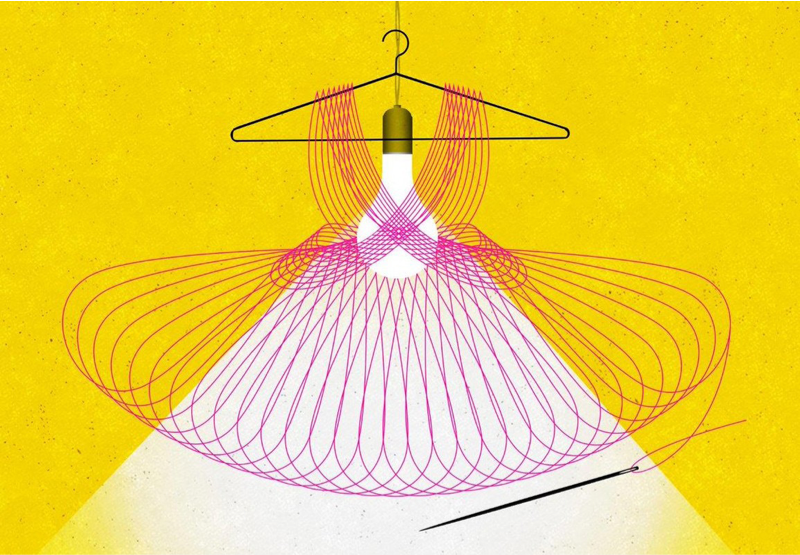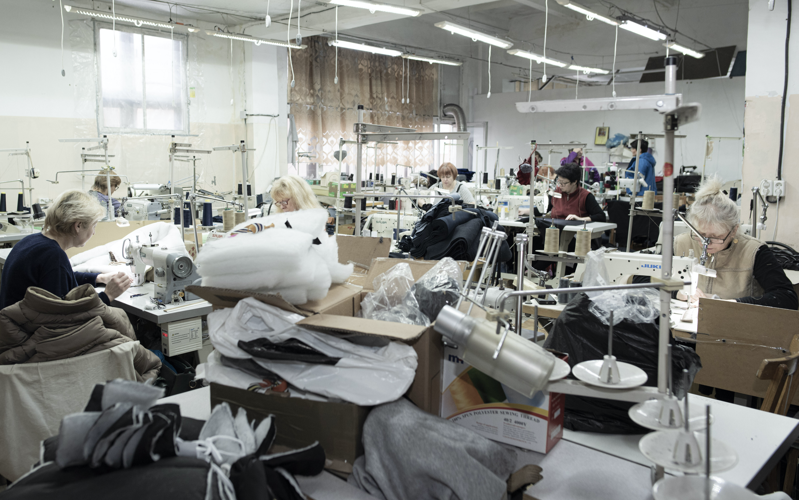Transparency
Transparency in production supply chains is the first step towards improved working conditions but it is not the solution. Brands that disclose data about the factories they use are not any better than the brands that do not. It does not mean the wages or any other working conditions are better. It just makes responsibility for labour rights abuses slightly easier to pin. Knowing the multitude of brands that a factory produces for can help brands co-operate on solutions to labour rights problems.
In 2016, nine labor and human rights organisations formed a coalition to advocate for transparency in apparel supply chains by calling for all garment and sportswear production companies to sign the Transparency pledge. The pledge is based on existing, positive industry practices. The objective is to help the garment industry reach a common minimum standard for supply chain disclosures by getting companies to publish standardized, meaningful information on all factories in the manufacturing phase of their supply chains.

There has been an encouraging increase in how transparent fashion brands are on where and how their clothes are produced. More and more brands are disclosing production locations and signing the Transparency pledge. However, there are still too many brands that refuse to do so, and even the most progressive brands still do not show their entire supply chain and hide their lack of progress on improving wages behind vague promises instead of verifiable, objective data.
What are they hiding? No brand publishes clear information on how much the workers make, or even on how (and when!) they concretely ensure that their suppliers can pay a living wage. There are many vague ‘commitments’, yet what the workers need are time-bound, measurable, enforceable steps to improve the situation. There is also an almost complete lack of information further down the supply chain, about sub-contractors, home-based workers, the workers who harvest and process raw materials and fabrics.

We’re demanding that brands do better: show how you are working towards a living wage, and make that information public. We also demand that policy makers create a level playing field: at least a minimal amount of transparency should be mandatory for all brands, upon which the brands can of course improve. That is the only way that companies can do their due diligence, and in the longer run the only way they can keep the trust of consumers.
Going beyond the pledge
Since the birth of the pledge supply chain transparency in the apparel industry has grown tremendously. Dozens of companies now publish the names, addresses, and other details of supplier factories. But this is only a starting point. Clothing brands that are serious about ethical supply chains can and should do more. A handful of companies have begun to disclose parts of their supply chain beyond tier-1, including information about the production of raw materials. But the transparency pledge is a floor not a ceiling. To foster the conditions necessary for change in the garment industry, brands need to be collecting more data about the factories in their supply chain.
The bottom of the supply chain
We want brands to ask suppliers where the women are, where are the migrants and what are the lowest wages. This will give a much clearer picture of the power imbalance in their supply chain which is the first step to making improvements.
Worker Unions.
We want brands to ask suppliers if their factories have unions or worker committees. Most of the time we have no idea if the people making our clothes have a voice. We want more information on who has power in the supply chain.
Readable data.
We want brands to release the data about their supply chain in a format that is useful and readable. It should be standard to supply machine readable information on all production units and processing facilities. Brands need to provide downloadable CSV or JSON data.
Transparency for the Consumer
We want governments to increase the transparency of products to empower citizens to make informed choices about their purchases. We want to expand the type of information on the labels of textile products to include information on the manufacturer. We also want to improve the social and sustainability criteria of the EU Ecolabel to reflect wage abuses.

More info about our transparency campaign.




